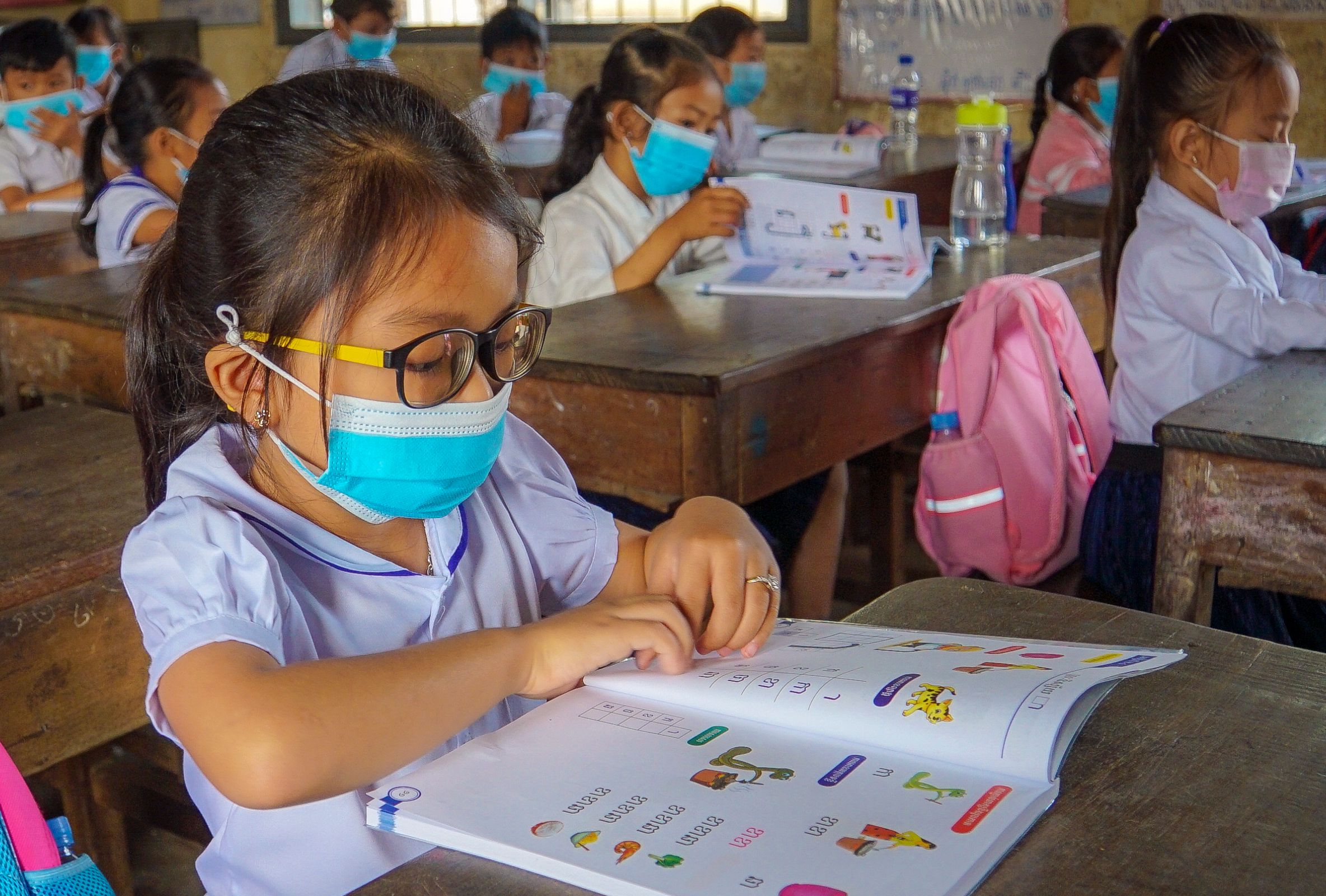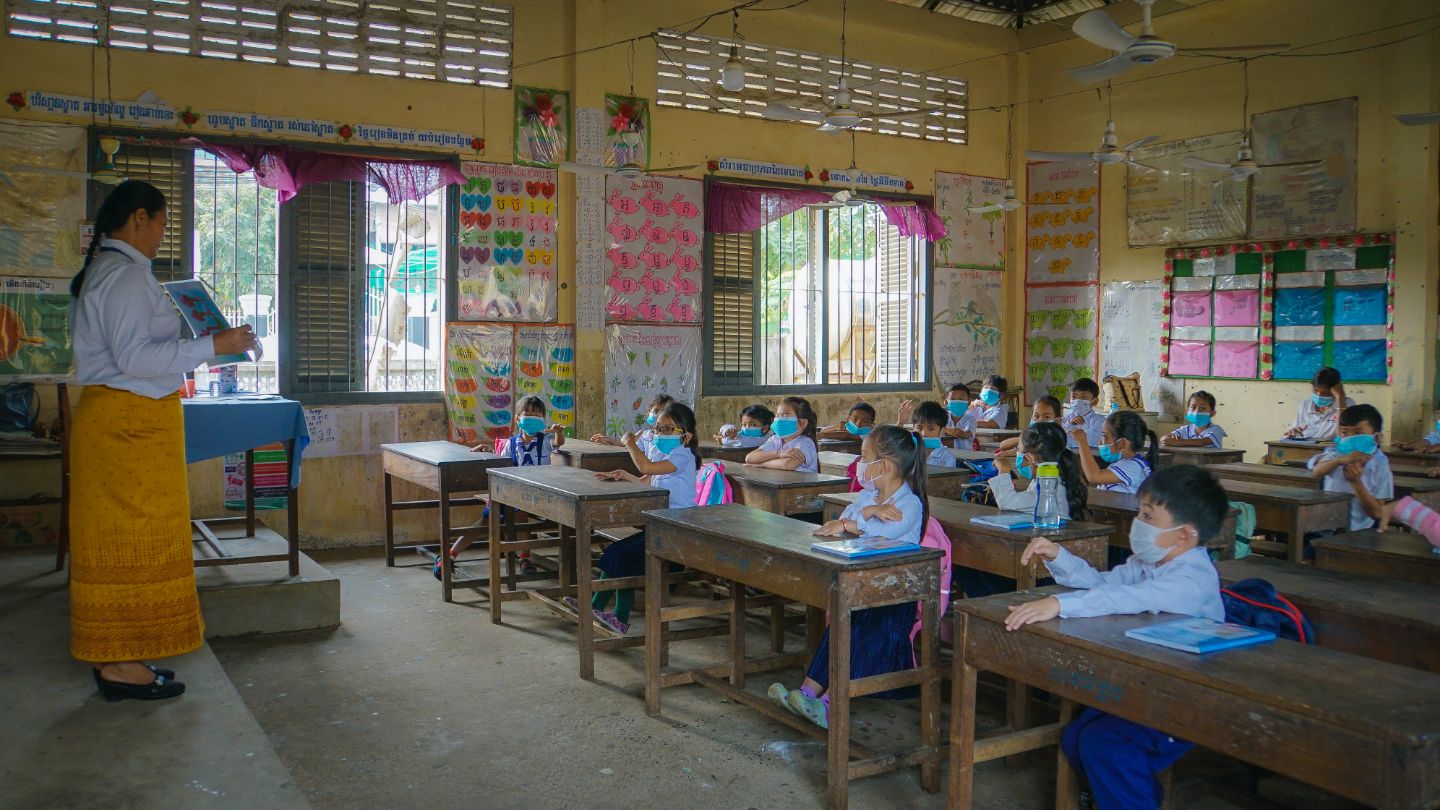During a pandemic, it would be understandable to expect student learning loss during disruptions to education due to school closures. However, the USAID All Children Reading—Cambodia (ACR—Cambodia), COVID-19 Impact on Learning study found that first grade students continued to develop early literacy skills during the pandemic, performing better on some skills than they did in pre-pandemic 2019.
In fact, students improved on all literacy skills that were tested on the Early Grade Reading Assessment (EGRA). Most notably, students’ ability to correctly identify letter sounds saw statistically significant growth. This growth occurred for both the control group as well as the intervention group, despite schools being closed March through September of 2020. This is significant because it was generally assumed literacy skills would wane during the pandemic-related school closures.











